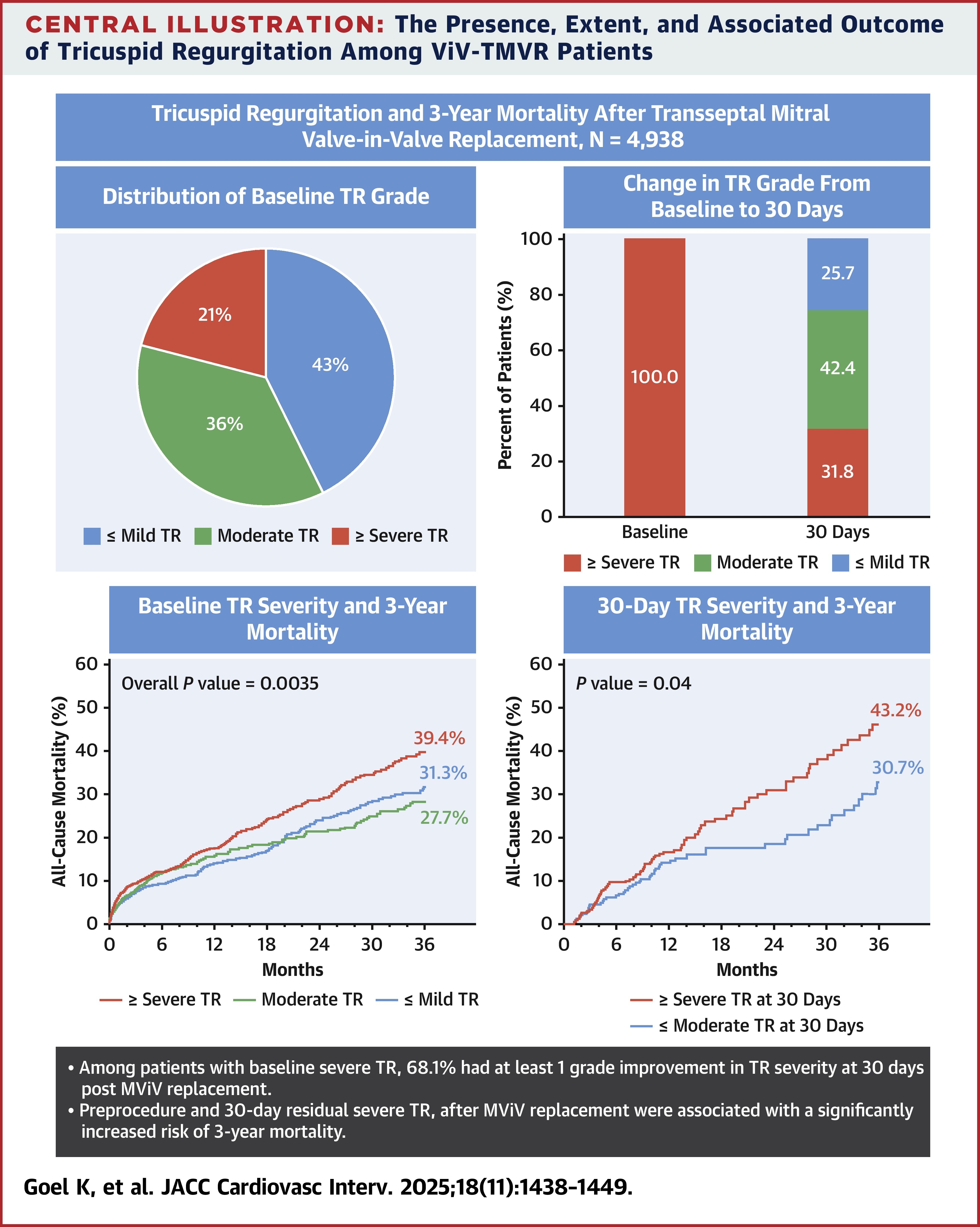Long-Term Outcomes of Patients With TR Undergoing MViV Replacement | NCDR Study
Patients undergoing transseptal mitral valve-in-valve (MViV) replacement with preprocedural severe or greater tricuspid regurgitation (TR), 30-day residual severe or greater TR, and unchanged or worsened TR post procedure, had a greater risk of all-cause mortality at the three-year follow-up, according to a study published June 9 in JACC: Cardiovascular Interventions.
Kashish Goel, MD, FACC, et al., used data from the STS/ACC TVT Registry and included 4,938 patients (21% with severe or greater TR at baseline) from 513 sites undergoing MViV from 2015 to 2024. They used propensity score matching to determine the impact of TR on three-year all-cause mortality.
Patients with severe or greater TR at baseline exhibited a significantly higher rate of three-year all-cause mortality vs. patients with moderate and mild or less TR (39% vs. 31% vs. 28%; p=0.004). Three-year mortality rates were also significantly higher among patients who had residual severe or greater TR at 30 days post procedure vs. those with moderate or less TR (43% vs. 31%; p=0.04).

Improvement in TR grade from baseline to 30 days, which occurred in 68% of patients with severe or greater TR at baseline, was associated with lower mortality in contrast with patients who had unchanged or worse TR.
"It is yet to be seen whether intervention for TR affects long-term mortality," write the authors. "However, this study suggests that any reduction of TR after MViV may be beneficial in reducing long-term mortality."
In an accompanying editorial comment, Christos Iliadis, MD, adds that "the study highlights the need for multidisciplinary heart teams to consider the full spectrum of valvular disease when planning treatment strategies."
Keywords: Tricuspid Valve Insufficiency, Mitral Valve, STS/ACC TVT Registry, National Cardiovascular Data Registries
< Back to Listings
